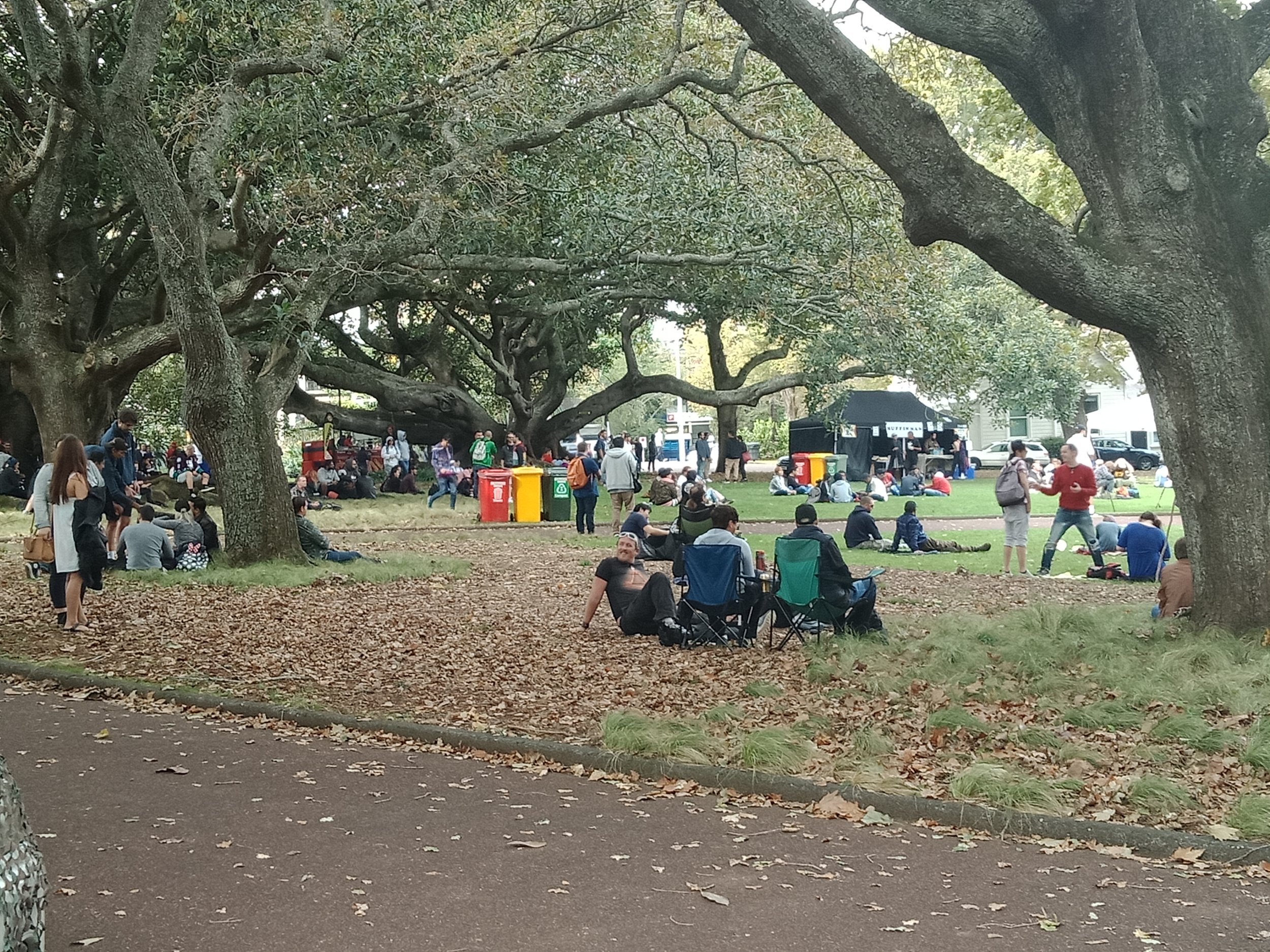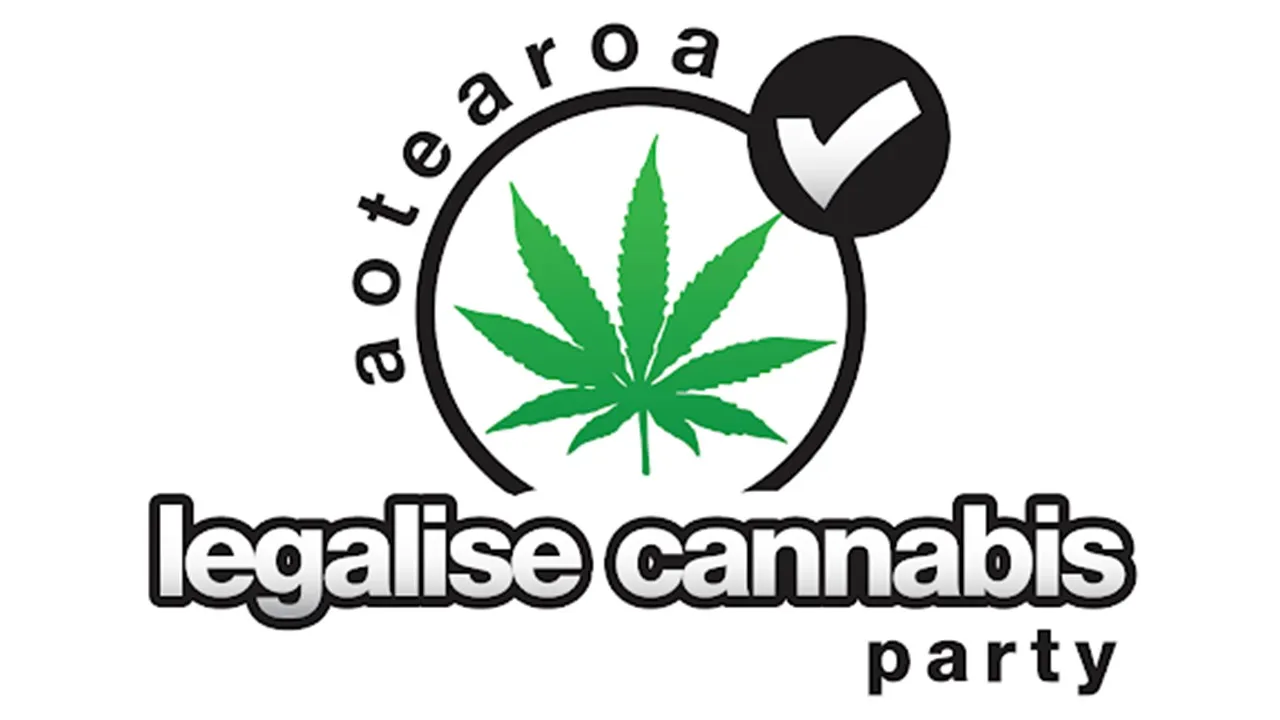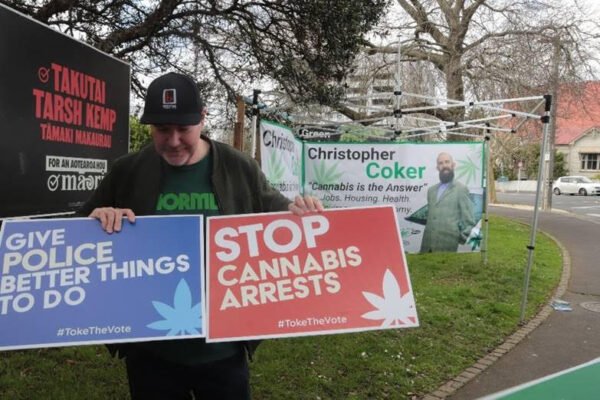YES! We asked AI the big question. ChatGPT 3.5
ARE THERE HUGE BENEFITS OF LEGALISING AS STRONGLY VOTED FOR (2020) IN AOTEAROA NZ? (YES, or NO? 400-word report please)
COMPREHENSIVE POSITIVE GAINS FROM CANNABIS LEGALISATION AND CONTROL IN NEW ZEALAND 2023:
These could be easily achieved through responsible, equitable legalisation and control of cannabis in New Zealand, which would counter many negative aspects of the current invasive law:
Restored Public Trust: Responsible legalization restores public trust by demonstrating a commitment to transparent and well-informed decision-making.
Enhanced Personal Freedoms: Legalization empowers individuals to make informed choices about cannabis use without fear of legal repercussions, respecting personal freedoms.
Encouragement of Open Dialogue: Legalisation fosters open discussions about cannabis and related issues (one less major taboo), encouraging diverse perspectives and informed debates within society.
Economic Growth: A legalised and regulated cannabis market can lead to economic growth through increased tax revenue, job creation, and the development of a new industry.
Global Reputation: Embracing cannabis legalisation aligns New Zealand with global trends, enhancing its reputation as a forward-thinking nation with progressive policies.
Optimized Resource Allocation: By redirecting law enforcement resources away from cannabis enforcement, the focus can shift to more urgent public safety concerns.
Equitable Enforcement: Legalization helps eliminate disproportionate enforcement on marginalized communities, promoting fair and just treatment under the law.
Innovation and Research: A legal cannabis industry encourages innovation in agriculture, medicine, and technology, fostering scientific advancements and improvements.
Strengthened Rule of Law: Responsible legalization restores a respected the rule of law, promoting a just and well-regulated society.
Increased Civic Engagement: Citizens are more likely to engage with a government that respects their choices and values, leading to active participation in civic matters.
In conclusion
One-word summaries and describes our answer. A resounding “YES!!” Comprehensive gains can be made.
By addressing the negative aspects of prohibition through responsible legalisation and control, New Zealand could potentially unlock these substantial positive gains for its society, economy, and overall well-being!
One Year Anniversary since our Med Pot HERO Neville Yates passed from this earth.
J Day 2019 Latimer Square Christchurch.
We are told that NZ needs more medicines for cancer and other diseases by Patient Voice Aotearoa, and they aren’t wrong.
But they also miss the point.
MedSafe (the regulator) seems captured. By whom, I do not know. But their actions suggest cause for deep concern.
Why would MedSafe commit a deliberate fraud to deny kiwis (and aussies!) access to safe, affordable, generic, and beneficial products that are proven by time and peer reviewed evidence to kill and retard cancer “in dose dependent fashion”?
These products have numerous other benefits. Pain, arthritis, anxiety, and more. They’re exactly the kind of product many citizens, and Patient Voice Aotearoa, want.
In summary: the Australasian food regulator (FSANZ) could see NO REASON to deny the public cannabinoid rich Hemp foods in 2016, due to their safety and public benefit.
Furthermore: MedSafes own internal advice said they were legal. ESRs Chemistry team said they were legal, and ESRs General Manager even made an affidavit to the High Court on the subject.
But. Amazingly. The Aus/NZ ministers of health wanted them kept from the public, and MedSafe seems to have concocted a lie to achieve that.
There may be an innocent explanation. Maybe MedSafe did not commit a fraud. If not, they could prove it. All they need to do is release the legal advice they used to deny us foods for health.
But MedSafe refuses to release the advice, citing ‘a lack of public interest’.
This seems odd.
Not least because the secret legal advice
A. Is based on a perverse interpretation of an international treaty no other country adheres to.
B. Was vital to overrule ESRs Chemistry team.
C. Is at odds with the OECD, AND the European Court of Justice.
Furthermore, it seems MedSafe had to concoct this legal advice to deny the public access to products the food regulator had concluded were,
1. Safe
2. Beneficial (incl. anti-cancer properties, and more)
3. Beyond its power to prohibit (due to their safety and benefit).
It may or may not be relevant that,
1. cancer is a key driver of pharmaceutical revenues, and
2. A patient cured is a customer lost, and
3. 90%+ of MedSafes revenues come from levies on medical/pharmaceutical products.
These factors suggest that prohibiting foods that benefit the public was as ‘commercially sensible’ as it appears unethical.
Read the evidence for yourself at www.thehempfoundation.org.nz, then join us.
Help us to prove there is ‘public interest’ in knowing if our Ministry of Health is on the publics side, or if it needs to be radically reformed.
Join us at the Hemp Foundation. We need your support to hold govt to account. It’s free! There are no obligations! We do all the work!
But we do ask, “Each one teach one. Learn and share” Arohanui. Tadhg
click onto link.
The hemp foundation
https://www.thehempfoundation.org.nz
In New Zealand, cannabis is classified as an illicit drug.
Possession of cannabis can result in a fine of up to $500, while supply or manufacture can lead to a 14-year jail term 1. The police are committed to reducing the demand for cannabis and disrupting the supply chain. Each year, they target people who grow and supply cannabis through aerial searches throughout New Zealand. Crops are seized and destroyed, and assets and cash obtained through the supply of cannabis can also be seized 1.
As for driving under the influence of cannabis, law enforcement officers are trained to detect drug-impaired driving using standard field sobriety testing (SFST) typically administered at the roadside. Drug recognition expert (DRE) evaluation includes a series of tests and a toxicological sample (urine or blood) 2. The most common method of roadside testing is still road-side behavioural or cognitive tests, performed by regular or specially trained officers. In states like Colorado, blood tests are also used if marijuana inebriation is suspected after a behavioural or cognitive test 3.
Detecting people driving under the influence of cannabis is a serious concern for law enforcement agencies around the world. In New Zealand, a survey conducted by the Drug Foundation revealed that “cannabis driving” is a serious road safety issue, with up to 12% of New Zealand drivers having driven under the influence of cannabis in the last year 1.
In Canada, law enforcement officers are trained to detect drug-impaired driving using standard field sobriety testing (SFST) typically administered at the roadside. Drug recognition expert (DRE) evaluation includes a series of tests and a toxicological sample (urine or blood) 23. In addition, police use oral fluid drug screening equipment to detect drug-impaired driving 3.
In South Africa, per se standards are used in legislation to address drug-impaired driving. There are generally two types of per se standards: zero-tolerance drugged driving laws and per se laws that stipulate non-zero thresholds for drugs or their metabolites, which constitute evidence of drugged driving 4.
Cannabis and alcohol both negatively affect a person’s ability to drive.
According to the Centres for Disease Control and Prevention (CDC), cannabis use can lead to slower reaction times, impaired judgment, and decreased coordination, all of which can contribute to a higher risk of accidents on the road 1.
However, it is difficult to compare the effects of cannabis and alcohol on driving because they affect people differently. The effects of cannabis depend on factors such as the amount consumed, the method of consumption, and the user’s tolerance level 2. In contrast, alcohol has a more predictable effect on driving ability because it is metabolized at a relatively constant rate by the body 3.
That being said, studies have shown that driving under the influence of cannabis is less dangerous than driving under the influence of alcohol. According to a study published in the Journal of Psychopharmacology, drivers under the influence of cannabis are less likely to drive aggressively and more likely to drive at slower speeds than those under the influence of alcohol 4.
Another study published in the journal Addiction found that drivers with blood alcohol levels above the legal limit were 13 times more likely to cause a fatal accident than sober drivers,
while drivers with THC levels above the legal limit were only 5 times more likely.
It’s important to note that driving under the influence of either substance is illegal or can result in serious consequences.
If you plan on consuming either substance, it’s best to avoid driving altogether.
Learn more:1. cdc.gov2. journalistsresource.org3. goodrx.com4. journal.nzma.org.nz5. msn.com6. interestingengineering.com+3 more
AOTEAROA LEGALISE CANNABIS PARTY PRESS RELEASE
“Wellington Central is Wide Open and we have an equal chance” say the ALCP.
The ALCP believes that with Grant Robertson no longer running in Wellington Central, the electoral race in this area is now wide open. The party's candidate, Co Leader Michael Appleby, has gained significant popularity during meetings and stands a great chance of winning as he continues to make his presence known. Appleby's objective in this election is to represent the cannabis community, which currently lacks proper representation.
It is important to note that 1.4 million people voted YES in the 2020 cannabis referendum,
and their opinions should hold weight in policymaking.
Even capturing 10% of that vote would secure 140,000 votes, which could potentially grant the ALCP seats in parliament.
A troubling double standard arises when we observe that many parliamentarians openly enjoy alcohol for recreational purposes while also admitting to past cannabis use. Yet, they continue to support the criminalization of the marijuana community.
This hypocrisy fosters a sense of injustice and inequality. As New Zealanders, we value fairness and are dissatisfied with these double standards.
The ALCP recognizes this sentiment and urges voters to
"Don't get Mad – Get Even and Party Vote for the ALCP" in the upcoming 2023 election.
In addition to Michael Appleby, the ALCP boasts a roster of talented candidates. Co Leader Maki Herbert has garnered notable support in Te Tai Tokerau, while Rebecca Robin in Te Tai Tonga is making waves with her musical pursuits. Christopher Coker, running in Auckland Central, gained considerable attention after appearing on the television show "Border Patrol" wearing a cannabis suit, which received thousands of likes. However, one of the party's standout candidates is Blair Anderson, who is running in Megan Woods' electorate, Wigram. Anderson recently returned from Canada with positive reports on how the country effectively regulates cannabis. He even shared the Deloitte Cannabis Canada Reports with Megan Woods, the Labour Party candidate, for her consideration.
Candidates available for comment
Party co Leader Michael Appleby - Wellington Central 027 440 3363
Party co Leader – Maki Herbert – Te Tai Tokerau 0224 108 369
Deloitte Cannabis Canada Report – Wigram Candidate - Blair Anderson – 021 823 647
Micheal Appleby candidate for Wellington
https://fb.watch/nimJ4vGiM6/
Karori Residents Association. Wellington central meet your candidates.
(9) #highturnout2023 - Explore | Facebook
Roll over TOP Party. With one week up our sleeves (God willing and fingers crossed) stay tuned for the massive ALCP "charm offensive" and challenge to split vote with co leader Michael Appleby next MP for Wellington Central and start feeding the MMP 'LEGALISE' coat tails vote and #highturnout2023 smart mob October 14!!! And liberate Aotearoa long overdue...

It is not responsible to leave cannabis on the black market.
The Aotearoa Legalise Cannabis Party say Government control is a better option.
New Zealand lags behind world trends when it comes to legalising cannabis.
The Aotearoa Legalise Cannabis Party say cannabis products, have wide-ranging benefits, both social
and medicinal as well
as mitigating climate change with sustainable hemp industry.
Let’s create an environment that gives adults the freedom to use cannabis responsibly.
Party vote Aotearoa Legalise Cannabis Party and help fix this broken law.
Authorised by Irinka Britnell, 563 Worcester Street Christchurch 8011.















